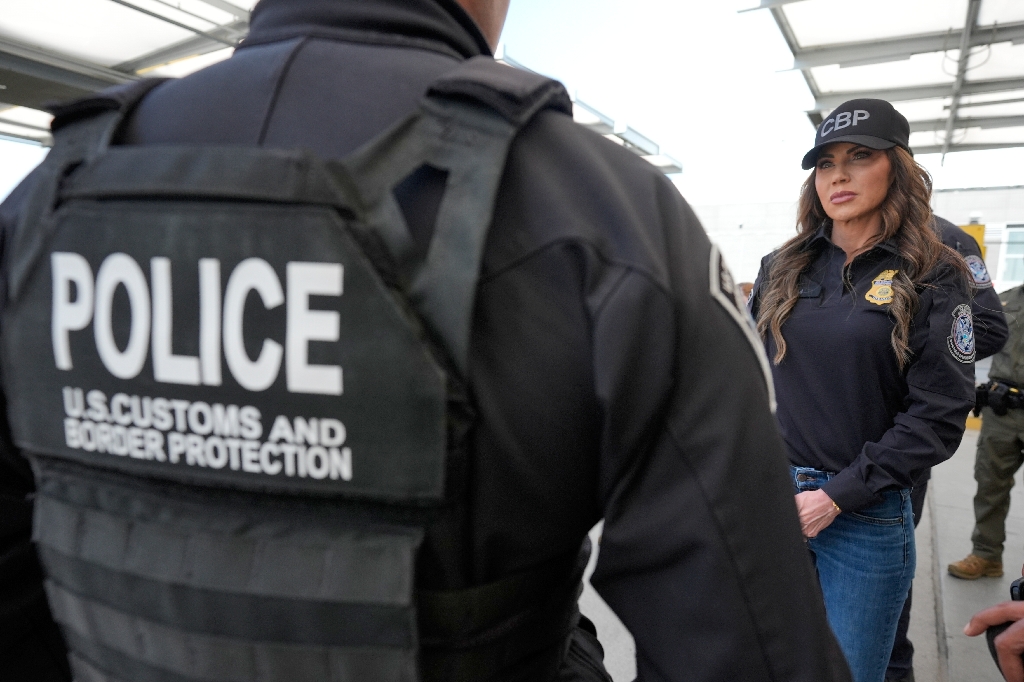Gaza Strip (Palestinian Territories) (AFP) – Israel said Monday there was no temporary truce to allow aid in or foreigners out of the Gaza Strip, where desperation was mounting among millions of Palestinians trapped in the heavily bombarded enclave with little food or water.
US Secretary of State Antony Blinken returned to Israel Monday before a looming ground offensive to “destroy” the Hamas Islamist group that rules Gaza, and emphasised that “civilians should not have to suffer for Hamas’s atrocities”.
Israel declared war on Hamas a day after waves of its fighters broke through the heavily fortified border on October 7, shooting, stabbing and burning to death more than 1,400 people, most of them civilians.
Reeling from the deadliest attack in its history, Israel has unleashed a relentless bombing campaign of the Gaza Strip, flattening neighbourhoods and killing at least 2,750 people, mainly civilians.
But with Israeli troops massed along the border, its calculations to invade Gaza where Hamas has built a warren of tunnels are complicated by the presence of 199 hostages captured by the Islamists.
The entire region was “on the verge of the abyss”, warned UN chief Antonio Guterres, as cross-border fire also intensified between Israel and the Lebanese Iran-backed Hezbollah group, which has warned of retaliation if Israeli forces move into Gaza.
In Gaza, there were scenes of panic, anger and despair all around, as Palestinians heeded Israeli warnings to vacate the north before its major offensive.
But the arrival of hundreds of thousands of people in the south was putting severe pressure on a place which had little resources to begin with and from where it is impossible to leave.
“No electricity, no water, no internet.I feel like I’m losing my humanity,” said Mona Abdel Hamid, 55, who fled Gaza City to Rafah in the south, where she is staying with strangers.
– Trapped –
With Israeli-controlled crossings closed and Egypt also having shut the Rafah border in the south, Gazans are effectively trapped.
Any departure of Palestinians from Gaza is a sensitive issue, with Arab nations fearing that it could lead to permanent expulsion, something which Blinken has also categorically rejected.
Foreigners have flocked to Rafah in the hopes of being let out, after Blinken said he was confident the crossing “will be open” for aid into the strip.
Reports had suggested that Egypt was blocking the passage of Gazans with foreign passports until relief supplies are allowed in.
But Israeli Prime Minister Benjamin Netanyahu’s office dashed hopes of a deal, saying in a statement on Monday that “there is currently no ceasefire and humanitarian aid in Gaza in return for removing foreigners”.
German national Ahmed Al Qasas, who has been waiting at the border three days for a chance to cross said “people here are barely receiving water and food”.
“In Gaza, in general, you can’t say there is a safe zone for any person or for any animal or for even stones,” said Danish national Etaf Al Rai, also waiting at Rafah in the hope of leaving.
Lynn Hastings, the UN humanitarian coordinator for the Palestinian territories, accused Israel of linking humanitarian aid into Gaza with the release of hostages abducted by Hamas.
“Neither should be conditional,” she insisted in a video posted by the UN.
“They have said they want to destroy Hamas, but their current trajectory is going to destroy Gaza.”
– ‘Think twice’ –
Harrowing testimonies from survivors of Hamas’ attack and horrific scenes of devastation have bolstered an infuriated Israel’s resolve to wipe out the group which it compared to the Islamic State.
“I have seen babies, women and men beheaded,” said Rabbi Israel Weiss, one of the leaders of the grim task to identify the victims using DNA samples, fingerprints and dental records.
The deadliest attack in Israel’s 75-year history has left it deeply traumatised, but also brought a groundswell of support for a looming land, air and sea attack on Gaza involving a “significant ground operation”.
Hamas backer Iran has warned that an invasion of Gaza would be met with a response, threatening wider security in the volatile region.
But Germany warned Iran to “think twice” about inflaming the situation.
Fearful that the skirmishes with Hezbollah could escalate into a two-front war in Israel, the United States has sent two aircraft carriers to the eastern Mediterranean as a deterrent.
With tensions intensifying, the Israeli army said it was evacuating residents who live “up to two kilometres from the Lebanese border”.
A ship evacuating US nationals from Israel left for Cyprus from the Israeli port of Haifa Monday, an AFP correspondent reported, in anticipation of intensifying hostilities.
– Escalation risk –
The White House has voiced fears at the prospect of Iran becoming “directly engaged”, after Tehran praised the Hamas attack but insisted it was not involved.
But US President Joe Biden has ruled out putting boots on the ground.
Biden reiterated US backing for Israel in “taking out the extremists”, but underlined that any move by Israel to occupy Gaza would be a “big mistake”.
The United States, which like several Western governments proscribes Hamas as a terrorist group, has also appealed to China to use its influence in the region to ease tensions.
Foreign Minister Wang Yi said Sunday Israel’s response had “gone beyond the scope of self-defence”, and demanded that it “cease its collective punishment of the people of Gaza”.
Russia, which is waging war in Ukraine, called on both sides to “immediately cease fire and start the process of political settlement.”
– Aid agencies’ alarm –
The UN agency supporting Palestinian refugees said Sunday that one million Palestinians had already been displaced in the first week of the conflict — but the number was likely to be higher.
In southern Gaza, the city of Khan Yunis, usually home to 400,000 people, has more than doubled in population within just days, with terrified families hunkering down in any available space, indoors and outdoors.
Israeli energy minister Israel Katz on Sunday said water supplies to southern Gaza had been switched back on, a week after a “complete siege” was announced.
But power outages threaten to cripple life-support systems, from sea water desalination plants to food refrigeration and hospital incubators.
Even everyday functions — from going to the toilet, showering and washing clothes — are almost impossible, locals said.
And being in the south is no guarantee of safety from Israeli air strikes.
Pointing to a doctor’s house that was targeted, Rafah resident Khamis Abu Hilal said: “All the family was wiped out.”




